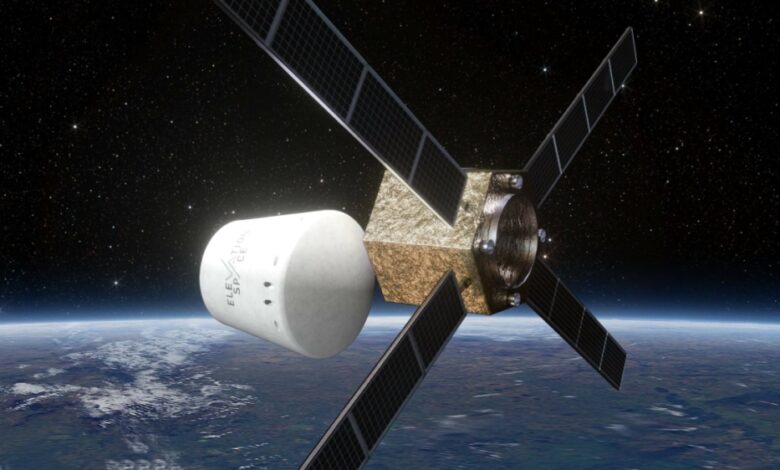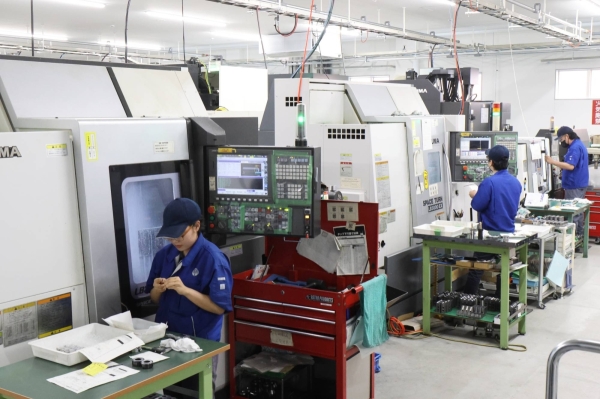Small Firms in Tohoku Rising in Japan’s Growing Space Sector

Enterprises in the Tohoku region also try to make more considerable efforts contribute to the extended space market, a field dominated by larger corporations. With various startups that develop space technology, it has opened a door for smaller companies to take part in developing an artificial satellite and other aerospace technologies. The Japanese government has plans to boost this sector; hence, it spurred hopes for the formation of a thriving space industry ecosystem in Tohoku.
New Opportunities for SMEs
One of the companies benefiting from this trend is Iwanuma Seiko, a metal processor headquartered in the city of Iwanuma, Miyagi Prefecture. It currently manufactures parts for Sendai-based space startup ELS. Entry into space constitutes a turning point for Iwanuma Seiko, which has conventionally been involved with automotive technology.
We were given a new opportunity,” says Koji Chiba, the president of Iwanuma Seiko. Entrusted with designing jigs that lock and rotate satellites and capsules, his company has worked on practically any area of precision technology. But handling space technologies poses different challenges. Even slight shocks or touches with tools cause unintended effects. Sensitivity unseen until now is required.
Despite such challenges, however, Chiba remains optimistic for the future. “There are lots of possibilities extending into the future,” he said, his eyes gleaming with enthusiasm over the blossoming space sector in Miyagi Prefecture. The involvement of local startups such as ELS gives the staff cause to feel hopeful and dream big for the region.
Tohoku’s Technological Capabilities
The first satellite, the Aoba satellite of ELS, will be launched in 2026 or later. In all, it is under development by some 100 firms, of which approximately 20 are based in the Tohoku region. “Regional firms have shown a high level of technology whether or not they have experience in space,” says ELS.
ELS also plans to establish a base in Minamisoma, Fukushima Prefecture, for assembling satellites and conducting combustion tests. They aim to create a wider ecosystem in space, with companies from the region participating.
TDC’s Precision Polishing for Space
Another key player in the Tohoku space industry is TDC. Based in the town of Rifu, Miyagi Prefecture, the precision polishing company manufactures parts for ELS-bound engines. The company boasts a good track record as far as contributing to prominent space missions is concerned. Last year, the company contributed to the JAXA project Hayabusa2, returning samples from the asteroid Ryugu. Contributing to this for TDC was a sample collection container that was mirror-finished by the company.
Also, TDC is involved in JAXA’s Martian Moons eXploration, also known as MMX, a mission to investigate the two moons of Mars. The company has fabricated such technologies capable of creating a surface roughness of less than 1 nanometer, which is important in industries involving space exploration.

The space industry is an extension of existing technologies,” TDC President Yuko Akabane said. It is a challenging sector, but as Akabane said, the obstacles are not that impossible to overcome with their refined precision techniques.
Expanding Japan’s Space Economy
Historically, the space industry has been driven by the government of Japan, although over recent years, private enterprise has increasingly taken an active role. In June 2023, the Japanese government revised the basic space policy, setting an ambitious target to more than double the domestic space economy, from ¥4 trillion in 2020 to ¥8 trillion by the 2030s.
Companies like Proxima illustrate this shift, a Sendai-based firm specializing in consulting about rocket engines. Founded by Makoto Yoshida, an engineer who used to work with JAXA, Proxima provides technological advice on developing rocket engines and has received inquiries regarding the development of space food, such as curry and ramen.
There is an opportunity for both small and middle-scale companies to undertake new challenges,” Yoshida said, adding that the space industry will be more accessible than ever to smaller companies in the future, bringing it closer to everyday businesses than ever before..
Conclusion
With the growing space sector, especially in the Tohoku region of Japan, a unique opportunity opens for SMEs to leave their footprints in this field. This would mean that with new emerging startups and the government’s push for expansion in the space economy, the role of small firms becomes increasingly important in the country’s space ambitions. Such a shift in direction promises not only technological advancement of capability in the region but will also inspire employees, foster innovation across industries.




